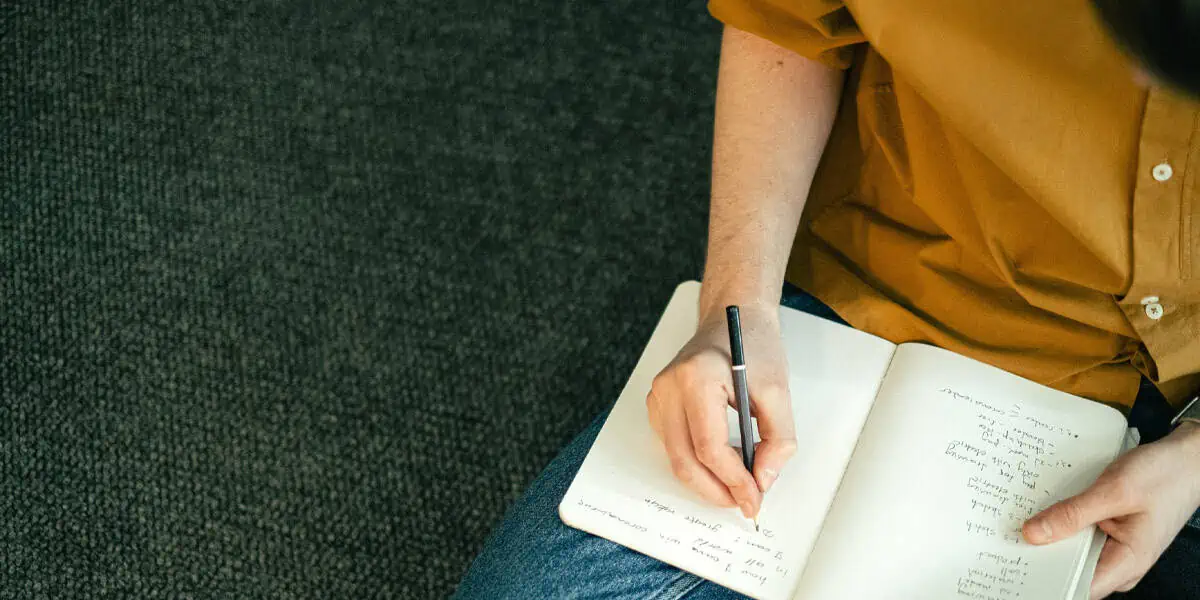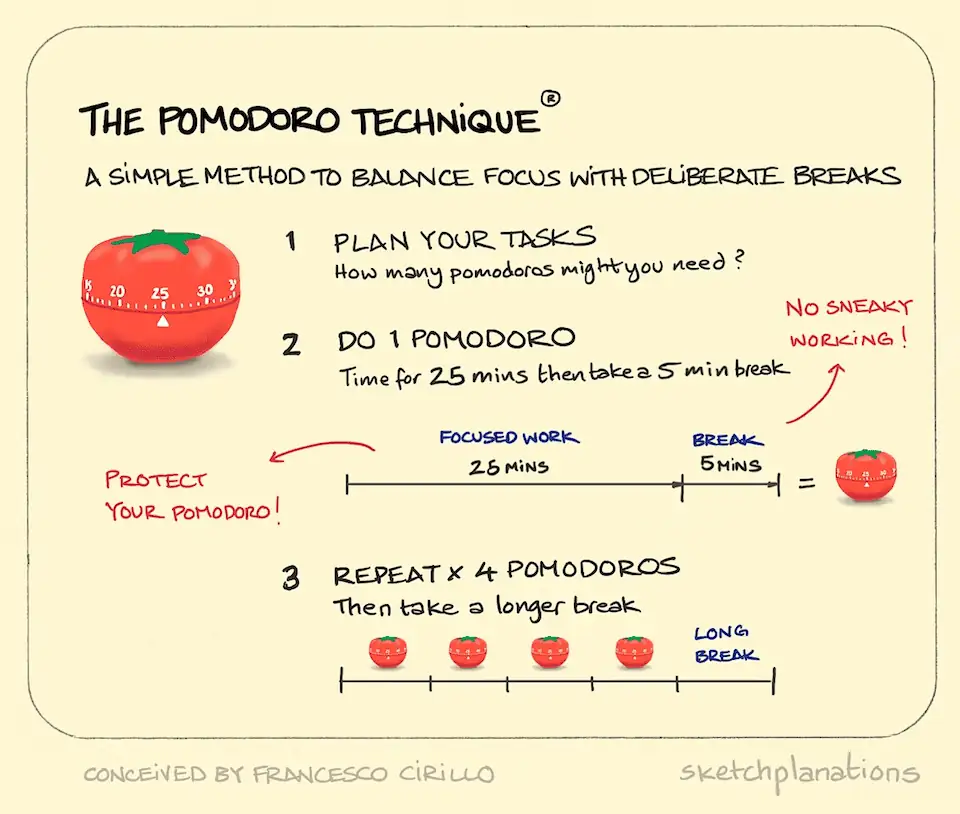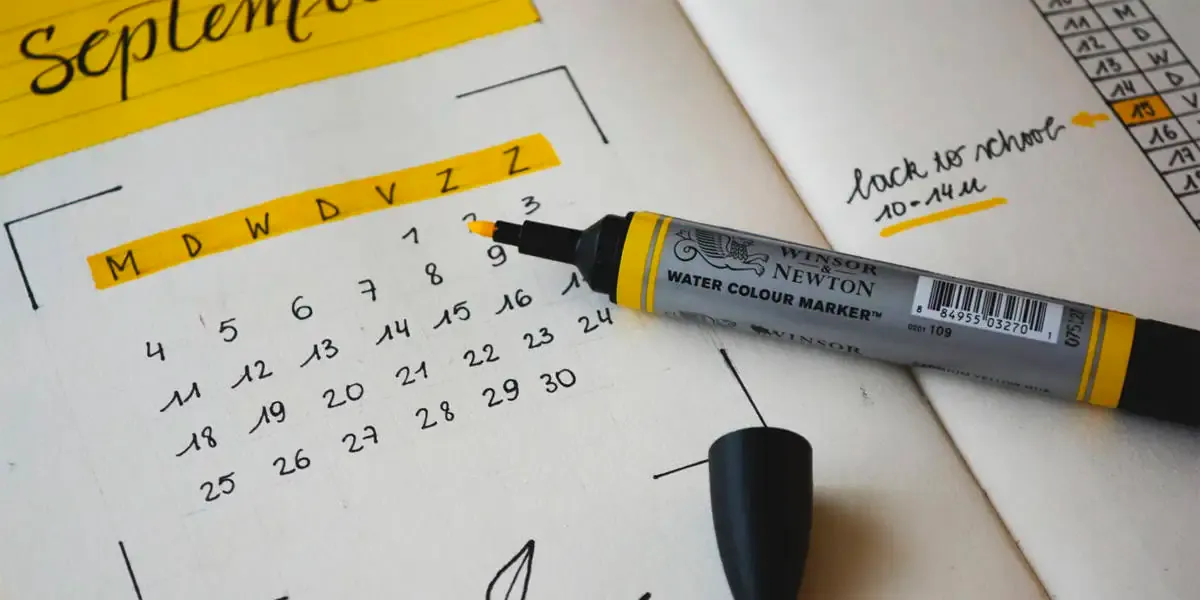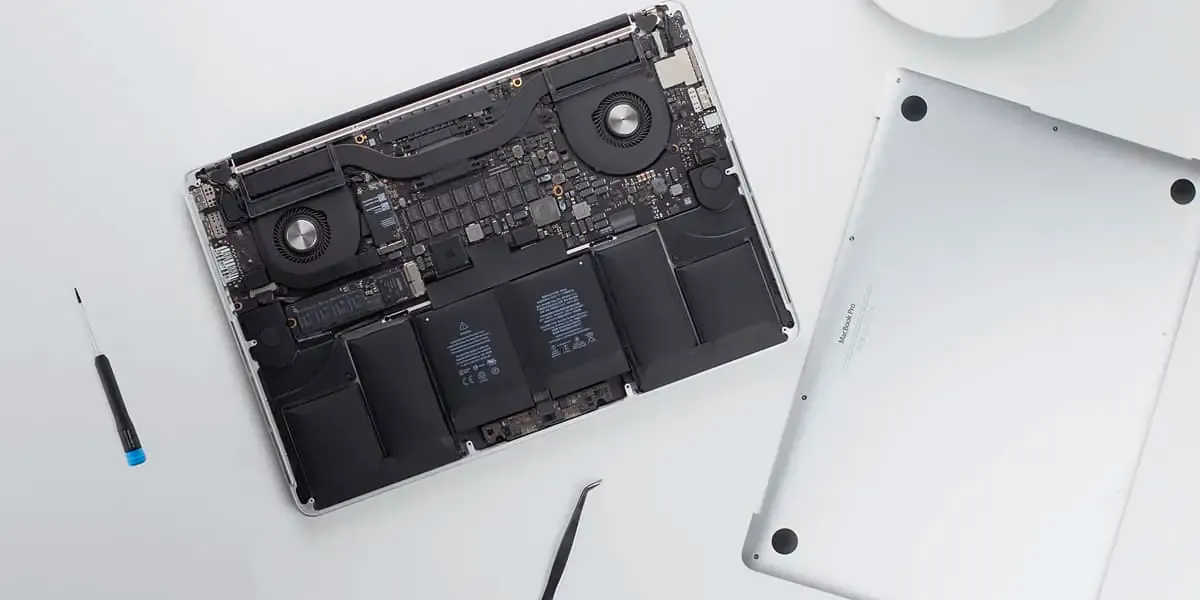In this post, I'm going to share 77 of my favorite productivity hacks with you.
Many of these hacks come from my personal experience, and I practice them daily.
And the best part?
They're easy to implement, and you can pretty much start applying them to your life… right now.
Let's get started.
1. Plan your tasks the night before
Imagine waking up in the morning and not knowing what to do.
It wouldn't be a productive day, would it?
If you spend some time every night writing down a list of things you need to do the next day, you'll wake up knowing what tasks you want to tackle first thing in the morning.
And you have a clear, concise plan of action for the day ahead.
2. Wake up early and get right to work
The first few hours of the day are crucial for productivity.
If you wake up early and get to work right away, you'll have a head start on your goals and tasks.
And you'll start the day off feeling much more accomplished and maintain a higher energy level throughout the day.
3. Use available resources to achieve your productivity goals
If you're a solopreneur, you can use apps to take and organize notes so you don't forget anything important.
My favorite app?
It used to be Evernote, but these days I mainly use Notion. It's free for personal use, and it offers a ton of features.
For more extensive projects, Trello is your best bet.
Team members can post updates as they complete them, allowing everyone involved to make something happen and increasing efficiency.
4. Find ways to be more productive during your downtime
What do you typically do on your commute to work and in between meetings?
Instead of scrolling through social media, you could utilize those moments for brainstorming ideas, replying to emails, and other smaller tasks.
Or, you could listen to podcasts, watch online lectures, or read articles to give yourself some doses of positivity.
5. Set deadlines for yourself
Deadlines keep you motivated with a sense of urgency. The closer you get to the deadline, the easier it becomes to complete your task.
But too much pressure isn't necessarily good.
The important thing here is that your deadline needs to feel attainable yet challenging enough to help motivate you throughout the entire process.

6. Wake up in the middle of the night and work on your tasks
Ever worked in the middle of the night and found yourself to be highly productive? The world is asleep and silent, and your mind is at its calmest state.
I used to do it all the time when I was younger. But not so much these days.
And if you live in a high-rise apartment in the city, you'll appreciate the peacefulness around you without the road and city noise.
7. Keep your desk clear of clutter
Too much stuff on your desk can create more mess and stress for themselves.
Keeping your work desk clean and organized allows you to focus on what's ahead without unnecessary distractions.
8. Practice good posture while you sit and work at your desk
Most of us spend a significant amount of time sitting at our desks, especially since COVID happens.
Maintaining good posture when seated helps avoid tension in your neck and back and keeps you from feeling tired.
Here's how you do it:
- Sit up straight
- Keep your eyes level with the computer screen
- Keep your arms at a right angle
9. Stand up to stretch every once in a while
But maintaining good posture is not enough. It's also important to get up from your desk every once in a while to stretch and get a drink of water.
Not only would that decrease the risk of potential back/neck pain, but it'd also keep you hydrated throughout the day.
10. Eat healthy, high-energy snacks during your breaks
Healthy snacks help rejuvenate your mind sharp and provide a source of energy to make it through the day.
Especially after a long work session.
Here are several types of snacks that work well for this purpose:
- Bananas
- Apples with peanut butter and crackers
- Cheese sticks with crackers or almonds
- Yogurt and granola bars
- Dried fruit
- Pretzels or tortilla chips with hummus.

11. Decide beforehand how long each task will take you to complete
You've got your to-do list and are ready for a productive day.
The question is:
How long will each task take?
Planning out what tasks need to be done ahead of time increases your odds of getting them done.
Plus, when deadlines are approaching and your workload starts piling up, you will be able to break down each project based on how long they will take and which one to focus on first.
You can also use this information for planning out free time if you know something is coming up later in the week or month.
12. Schedule a high-priority task in the morning
Complete your high-priority tasks when your energy level is at its peak in the morning.
It'll be less stressful to tackle other more manageable tasks even when your energy levels drop later on during that day.
At the very least, you'll feel much better about getting something meaningful done first thing in the morning.
13. Break up larger tasks into smaller steps
Doing so can avoid having too much on your plate all at once. You'll feel less stressed about how big or challenging something may seem because each step is attainable.
And because smaller tasks are more manageable and easier to complete, every day feels like an achievement instead of just another overwhelming task looming over you in piles.
14. Create to-do lists for everything, and keep them updated regularly
Making lists helps organize your thoughts and make sure nothing gets overlooked. Not to mention, you'll be able to utilize your time much more efficiently.
Here's the thing:
Making lists alone is not enough.
You also need to keep them updated regularly.
That way, no items slip through cracks unintentionally, which may lead back into chaos if left unattended for too long.
15. Taking notes of all your ideas
Your brain is powerful — you can think and remember at the same time.
But can you remember everything you've learned? How do you even keep track of all your thoughts?
That's when your note-taking system comes into play.
Taking notes of every idea and thought that comes to us allows us to preserve them in one place systematically.
And when you need it for a project, you'll be able to find it easily.
My personal favorite?
Notion, again.

16. Work during the time of day that you are most productive
The best time of day for work is different for everyone.
Some people like getting up early and starting their days with a burst of energy. Others might perform better in the afternoon or evening when there are fewer distractions around them.
There's no right or wrong answer to this. Try to experiment with different times of the day and see what works best for you.
17. Don't wait for inspiration — work on something instead
We're all guilty of waiting for inspiration to strike us before we start working on a project.
But here's the deal:
We don't know when inspiration will come to us.
And even when it comes, we won't know how often it'll come.
So instead of wasting time on something we have zero control over, a better approach is to start working on something.
As we do that, ideas will start coming to us, and eventually, we'll realize it's the actions that create clarity, not the other way around.
18. Reward yourself for accomplishing difficult tasks
Work could be tedious at times. So when you're able to get a difficult task done, pat yourself on the back and reward yourself with something that makes you happy.
It could (and should) be something simple as ordering your favorite food or drink for yourself, allowing yourself to play video games for half an hour, or even taking a nap.
Those little treats are what make our daily challenges seem more manageable (or even enjoyable).
19. Have everything prepared before starting work
Having everything prepared allows you to quickly and easily find what you need for the actual task at hand.
And you'll save so much time when it comes to completing the tasks.
Also, if you're one of those that constantly get distracted by social media or websites, it's helpful to do your research in advance and turn off the internet when you're doing the work.
20. Keep your workplace clean and organized
Having everything prepared before work gets you ready to tackle your tasks, but it's pointless if your workplace is cluttered, disorganized, and things are all over the place.
Keeping everything in its own designated space reduces the risk of losing something and helps reduce stress levels and get more done.

21. Focus only on one task at a time
We tend to multitask and do several things at the same time.
But this is where you can get into trouble and be more susceptible to distractions.
Here's the truth:
Multitasking does not allow your mind to focus on one task properly because it's constantly split and going back and forth from one task to another.
Every time we switch to a new task, we need some time to get into the flow and get focused.
And if we're constantly switching from task to task, all the time that we spend gaining focus might as well be spent on getting a single task and then moving on to the next.
So next time you find yourself feeling fatigued or trying to do too much at once, take a break from what you're doing.
It might help to go for a walk or get away from your desk so your mind can wander and find clarity again.
22. Set goals for yourself that are difficult but achievable
Setting challenging but achievable goals for ourselves is an excellent way to motivate and push ourselves to work on something.
For example, setting a goal of reading for at least 15 minutes a day will help us cultivate the habit of reading in the long term.
It's a small commitment that we can achieve even when we don't feel like doing anything.
That said, make sure the goals aren't too easy. Otherwise, it'd feel like you're playing level 1 in a video game when your player has reached level 99.
23. Find an accountability partner
If you can find someone who shares a similar goal and vision as you, invite them to be an accountability partner.
The journey of entrepreneurship can be difficult and lonely. A like-minded person can give you advice when you need it and keep you motivated and focused on your goals.
And vice versa.
24. Have upbeat music playing in the background while you're working
Although studies have shown that upbeat music elevates moods, I see this as a more personal preference.
I find listening to instrumental music while working allows me to focus on my task more efficiently. Listening to my favorite songs makes me want to sing along.
But these days, when I need to get some deep work done, I usually turn on Focus mode on Brain.fm and switch the time to Infinity.
For some reason, the music on Brain.fm helps me stay focused easier and for a longer time than any other type of music.
25. Make sure to take breaks now and again
Taking breaks now and again enables our minds to rest and recharge for the tasks ahead.
We need to maintain a good work-life balance which means doing things outside of work that give us joy and happiness.
It took me quite some time to be okay with playing video games (moderately) when I'm supposed to work, but the process gives me a new perspective about what I really want in life.
I enjoy entrepreneurship and pursuing goals but can't see myself spending the rest of my life at work. No matter how much I love doing it.
The bottom line:
Passions are important. Allocate time to do what you enjoy doing outside of work, and don't be too harsh on yourself.
It's an infinite game, so don't play it with a finite mindset. #SimonSinek

26. Maintain weekly exercises
Exercising every week is crucial because it helps maintain your physical health.
You might be focused entirely on work and neglecting your physical form, but a healthy body leads to a healthy mind in the long term.
It may seem like a chore at first, but exercising can help make you more productive.
Plus, studies have shown that regular exercise can reduce stress and bring about a sense of relaxation, which can help clear your mind of clutter.
And I'm guilty of this too. Don't judge me.
27. Read books about self-development
Over the years, I've read many books about self-development, and to say those books change my life is an understatement.
I remember ordering a soft copy of Dean Graziosi's book "Millionaire Success Habits" from his ads on Facebook.
It's one of the first English books I've read, and it opened my eyes to how our minds work and how successful people set themselves up for success.
Dean recommends another book at the end of the book — "The Slight Edge," which became one of my favorite books.
And then, at the end of his book, Jeff Olson recommends other books. It goes on and on...
Now:
I'm not an avid and fast reader. And I try to read more enjoyably rather than conscientiously. Yet still, I've learned so much from those books, and it's safe to say those books have helped me become a better person in every way.
28. Invest in a good pair of noise-canceling headphones
A good pair of headphones is as essential as the music you listen to while working, especially when you spend most of your working hours at the office, coffee shops, or co-working spaces.
I couldn't tolerate noise (especially human-made noise), so when working at a coffee shop, I use AirPods Pro or Max to isolate the surrounding noise.
Moreover, when you want to relax and listen to your favorite music, the immersion you get with a good pair of noise-canceling headphones is going to make it worth its uneconomical cost.
29. Cut toxic people out of your life
I know this makes me sound like an ass, but sometimes it's good to cut toxic people out of your life (or at least reduce your time spent with them) and surround yourself with people who genuinely care about you and want to see you succeed.
If someone is constantly bringing negativity into your life and never doing anything to improve their lives and the betterment of others around them...
... why keep them?
It might be hard at first, but trust me: You'll thank yourself later.
30. Keep yourself energized with a cup of coffee
I'm not going to get into the discussion of whether coffee is good or bad for our health. I simply don't know enough to talk about that.
But if you need a good reason to get out of bed, consider this: coffee.
Specifically, a good cup of coffee.
I typically only drink one cup of coffee per day in the morning for a caffeine boost. Too much of it will affect my sleep quality.
And it's usually enough to keep me energized throughout the day.
But don't take my word for it. Experiment with it yourself and see if it works. Alternatively, green tea, hot cocoa mix, or other sources of caffeine are worth a try too.

31. Use websites or apps to block out distractions
If you're constantly distracted by Facebook notifications about cute cat videos, and you couldn't help but binge-watch videos until a few hours have passed...
... you need help, seriously.
Apps like SelfControl and StayFocused are designed to help you block out distractions while you're working.
32. Use a timer or alarm clock so you know when to take a break
Taking breaks every once in a while is crucial to prevent burnout and keep your mind fresh for extended work periods.
But how do you know exactly when to take a break?
The answer? The Pomodoro technique.
It's an effective method of breaking up long periods of intensive and challenging focus with short breaks to maintain intensity levels over longer periods.
Here's how it works:

Before work:
- Set a timer for 25 minutes.
- Work for 25 minutes until the timer rings, then take a 5-minute break.
- Repeat it four times, then take a longer break.
- Rinse and repeat until you get your work done.
Those small breaks will help keep your brain fresh while also keeping you motivated throughout the day.
33. Set up a specific time for checking and answering emails
Checking emails when you're supposed to be working is one of the "productive" ways to procrastinate.
A great way to combat this is to set aside a specific time of the day for it, so you don't have to think about it during work.
For instance, 30 minutes after lunch and 30 minutes at night before bed. Whatever works for you.
This way, you can stay focused when you're working while also staying on top of your inbox.
34. Work in a quiet and comfortable place
It's self-explanatory:
Working in a quiet environment allows you to focus better and get more deep work done. And a comfortable place allows you to work in a good mood.
I enjoy working in a natural light-filled space. Being seemingly closer to nature makes me feel better.
35. Reschedule a task if it takes too long to complete
Most of the time, we don't have enough hours in a day to finish all of our tasks.
If you find yourself with a task taking longer than it should be, feel free to reschedule it for later on in the week.
But only do so if it's not due anytime soon. Otherwise, the task would keep getting pushed back and never be completed.

36. Remember that not everything has to be perfect
When it comes to entrepreneurship, it is nearly, if not impossible, to avoid mistakes and delays.
The good news?
Not everything has to be perfect.
The best way to learn and get better at something is by doing.
Plus, no one will see your drafts and rough work anyway, so you can take time to experiment with things without the pressure of getting it right from the get-go.
And when you learn to let go of perfection, you no longer get swamped by fear of screwing things up. That's when you're able to unleash your true potential.
37. Create a new battle plan
Sometimes, we have a general idea about what we want to achieve but have no idea how to do it.
That feeling of uncertainty can be paralyzing and make you feel stuck.
In this case, it helps to write down everything that comes to mind and then choose the best plan from all those potential options.
Remember that not everything has to be perfect. You can always go back and tweak things. The important part is not to discard any of your ideas prematurely.
38. Work in a place where other people can see you
Sometimes, working in a public space can be helpful because it motivates you to work harder.
But it's not just the physical environment that matters. You also want to have the right people around you.
For instance, if you're working on a project and the deadline is approaching, you probably don't want to pick a coffee shop to work where many youngsters are gathering there to play mobile games.
39. Set up a dedicated workspace where there are no distractions
If you have pets or children and spend most of your time working from home, They can be a significant distraction and make it hard for you to get anything done.
A good way to deal with this is by setting up a designated area for work with plenty of visual and auditory privacy so you don't get distracted when working on the tasks at hand.
40. Encourage other people to be quiet while you're working
If setting up a dedicated workspace isn't possible, try encouraging people around you to give you a break when you're trying to work.
Sometimes you need to work, but other people don't.
It can be frustrating when they interrupt your flow by asking questions or talking too much in the room with you.
Make it clear that you need quiet time to work, and if they're making too much noise, politely ask them to stop.
41. Find an easier task that you can do in a short time so you can feel productive
If a task drains too much of your energy and makes you feel stuck, try to find an easy task that you can finish in minutes.
You'll feel good about it, and it'll make it easier to get back in the right mind frame to tackle the critical task at hand.
42. If you don't enjoy a task, try to find ways of making it more interesting
It could be listening to music while doing the task or including some variety in the process.
For example, if you're writing an article, look up interesting facts about the topic and include them in your article. You'll learn something new and will be able to engage with your work differently.
Fun fact:
When I was researching more information to elaborate on this point, I stumbled upon an interesting app called Habitica that lets us gamify our daily chores and tasks.
Upon account creation, you'll be asked to create and customize your RPG character. You'll then be able to add habits, daily tasks, and to-do lists to the app, and by checking them off, you earn points which you can then use to upgrade your character.
Pretty interesting, huh?
43. Limit your time spent on social media
Occasionally using social media to keep yourself updated with what's going on with your friends, family, and your communities is fine.
But excessive consumption can be addicting and suck up tons of your day.
Not to mention constantly looking at other people's lives through a beautified lens can really affect your well-being and sense of self-worth.
Luckily, there's a Screen Time feature integrated into pretty much every smartphone out there. So use it wisely and limit your time spent on social media.
44. Learn to delegate as soon as possible
If you're the type of person who is a perfectionist (like myself), it can be hard to delegate tasks.
But the sooner you learn to delegate, the easier it will become.
It takes more time and energy to do something yourself than to hire someone else to do it for you, especially when it comes to things you're not good at.
Don't be that person who tries to do everything by themselves and never hands anything off to others. Otherwise, you're not likely to go very far (and fast).
45. Turn on Focus mode on your phone
Turning on Focus mode is a simple way to cut off distractions while you're trying to work.
It's best to set up an automation so you don't have to do it manually every day.
But what if someone has to reach out to you for an emergency?
Well, that happens, though highly unlikely.
The Focus feature in the new iOS 15 allows you to set up different focus modes for different occasions and add certain people and apps as an exception.

46. Follow the 80/20 rule and get more done in less time
The 80/20 rule suggests that we focus on the 20% of tasks that generate 80% of our results.
By prioritizing tasks in your day and working on the most important ones, you'll be able to put your best efforts into what really moves the needle and reserve more time for your other activities.
47. Use templates to save time when replying to recurring emails
Email templates can save you time when dealing with recurring messages or requests.
For example, if there is a particular type of email that most often appears in your inbox, and it's pretty much the same every single time...
... you might want to create an automated template so replying takes less than a minute.
48. Learn to say "no" to things that don't help achieve your goals
Many things seem like they could be good for us — and it's hard to say no.
But if you're trying to work on something and someone is asking too much from your time, you might want to learn to say "no."
The idea, however, isn't to be a jerk and say "no" to everything. It's a balance that you need to find to stay focused on your goals while maintaining good relationships with people in your life.
49. Make a promise to yourself and share it with others
When you make a promise and share it with someone else, it makes you treat it more seriously.
And if you share it with the right person, they will hold you accountable for the promise you make, which will ensure that you follow through with what you said you would do.
Alternatively, if you have a decent following on social media, declare your goals there and let your followers hold you accountable and keep you on track.
50. Create a list of tasks you can complete in less than 5 minutes
Once you're distracted from what you're doing, it's not always easy to regain focus.
But you can create a list of tasks that can be done in less than 5 minutes and that you know will help you regain focus and get back into the flow.
That way, every time you lose focus, you know what to do to get back on track.

51. Get a standing desk
I've been using a standing desk for almost two years now, and I absolutely love it.
Over the last few years of working from home, I'd developed mild neck pain from sitting in front of the computer all day.
These days, I typically stand up while working at least a couple of times throughout the day to not forget to stretch my body and maintain a healthy blood flow.
Remember to pair it with a good ergonomic chair, especially if you also work from home a lot. And don't try to cheap out on these things. You won't get your health back once you lose it.
52. Automate recurring tasks so you can spend more time doing important stuff
Believe it or not:
We spend more time than we realize doing repetitive and time-consuming things.
And those things are what we can usually automate with a computer to have more free time doing what matters most.
This includes paying bills online, scheduling appointments, filtering emails into folders based on priority level, etc.
Or, if you need some human help, platforms like Upwork and Onlinejobs.ph offer a simple, streamlined process to hire a part-time virtual assistant.
53. Avoid working in public places if you can't work well there
Some people find they are more productive in public places.
But let's be honest:
Not everyone enjoys working in public places and can focus on work there.
If you're one of those people, it may be best to avoid working in those places. Or at least try new places from time to time and see if you can stay focused.
54. Talk with someone if you're stuck and feel like giving up
When facing difficulties in life, our judgments sometimes get clouded by the obstacles in front of us.
In those moments, it's easy to feel like giving up on whatever we set out to do.
Talking with someone about what's bothering you and what you're feeling might help you pull up your socks and get unstuck.
Just make sure the person you talk to is supportive and isn't someone who always tries to bring you down.
55. Get enough sleep and rest before work
Pulling an all-nighter might make you feel like you're hustling and feel good about yourself, but in the long run, it's not sustainable.
You need 8 hours of sleep before you feel wakeful and well-rested. If this doesn't make sense now, wait till you're in your 30s and you'll understand.
Getting enough sleep and rest not only helps you feel better but also performs better. And you probably won't need as many cups of coffee to keep you energized.

56. Don't eat bad food and reduce sugar intake
One thing you can do to increase your productivity is to eat better. Try to avoid junk food in general, as it's known to make you feel sluggish and tired.
If you regularly need to eat between meals, mixed nuts are a great choice. They'll fill you up without making you feel heavy or clogged.
Also, try to reduce your sugar intake while working. The problem with this is that sugar spikes your blood sugar and eventually leaves you feeling low again.
57. Train your willpower to persevere when things get difficult
Often, we cannot focus or be productive at work not because of external reasons but because of something within us.
Think about it:
Do you have to be productive when playing games? Or watching TV?
As we progress along, things inevitably get difficult. And when that happens — depending on how strong our mindsets are — we might feel like giving up and doing something else instead.
In this case, productivity isn't the issue. What we should do is train our willpower to keep going despite the discomfort.
I know it's easier said than done, but remember this:
We gain confidence from having achieved things. That confidence will motivate us to keep on trying new things. And it goes on and on. Before we know it, a virtuous cycle is formed.
58. Practice meditation
Meditation is a proven way to practice concentration and to be present. When we meditate, we only focus on one thing — breathing.
Enough practice can help you clear your thoughts and improve mental clarity, which leads to better decision-making and higher productivity.
Not to mention meditation can also help calm stress and anxiety and remind us to be present instead of constantly regretting the past and fretting about the future.
59. Sleep early
We've talked about why you should wake up and get enough sleep before work. Let's talk about why you should sleep early.
The answer is simple:
You can't wake up early without sleeping early. At least not sustainably.
Whenever I fail to convince myself to sleep early, I either wake up late or wake up tired the next day.
It's a cycle we create for ourselves. If we sleep late and wake up early, how will we get 8 hours of sleep?
You just can't bend the laws of nature.
60. Make your bed every morning
Do you want to start your day on a positive or a negative note?
Then it should be clear why you need to make your bed every morning. It gives you a sense of order in life and the feeling that you have achieved something first thing in the morning.
And having your place look tidy just makes you feel good about yourself and your day, doesn't it?

61. Read books and articles about productivity tips
If you find this article at least somewhat helpful, read more articles about this topic.
It's easy to assume we know enough about something and not consume any more content about it.
But here's the truth:
We don't know what we don't know.
However familiar we're with a particular topic, there'll always be new things we can learn that we don't already know.
If something works for you, keep doing it. Simple as that.
62. Limit/avoid dopamine-boosting activities
I wouldn't get too extreme on this, but sometimes, it's important to limit activities that'll give you a dopamine boost as they could lead down the path of addiction.
If you have a daily habit of watching TV shows or playing video games for hours...
Every time you face difficulty with your work and feel like running away from it, chances are your mind would remind you of the fleeting joy that comes from those dopamine-boosting activities.
Here goes a vicious cycle...
63. Make a list of all the things that regularly distract you and find ways to deal with them
We tend to get distracted by the same things more often than we're willing to believe. So if you could make a list of everything that distracts you regularly, it'll help you come up with a plan to deal with them.
For instance, if you keep having the urge to play video games, try packing your gaming console back into its original box and keep it in the storeroom.
By increasing the friction, you'll be less tempted to go through all the setups to play it.
64. Learn to get over the fear of judgment
A common reason why we procrastinate is that we're afraid of someone judging us for what we do, especially if we're trying to put ourselves out there and share our work on the internet.
I've been struggling with fear of judgment for the longest time, so I can relate to that.
While it's practically impossible to overcome the fear of judgment completely, I think it helps to realize this:
Whatever you do and how you behave, people will judge you anyway.
Most of us are taught to keep our heads down and not to stick our necks out. When you're trying to build a personal brand and air your opinion publicly, it contradicts their values and what they're used to.
And if you happen to encounter insecure people online, they're going to project their insecurity onto you and say something nasty to you.
Being aware that it's not always your fault and that all you can do is keep doing a better job at what you do can help you get over the fear in a stepwise fashion.
65. Go out and have a walk
A walk in nature is said to have an immense effect on our mood, as it's been proven that there are many more positive emotions than negative ones when we're outdoors and getting some fresh air.
So if you ever get stuck on what you're doing, a trip to the park could be just what you need for a quick mental break.
Spend some time taking deep breaths while listening to birdsong or looking at beautiful trees, then take home your newfound sense of calm with you!

66. Build a routine — it's easier to plan your day ahead
I'm not a fan of living my life on a rigid routine.
But I can't deny that sticking to a routine makes my life easier. For instance, completing a simple morning routine can give me enough energy and positivity to get through the rest of the day.
So I recommend trying to set one up and see how it works for you. It should, at least, make your day run smoother and give you more clarity on how much you need to get accomplished that day.
67. Learn to focus on the process instead of the outcome
One devastating thing about being outcome-oriented is that sometimes the feeling of uncertainty is so strong that you feel like giving up before you even start.
But if you learn to focus on the process instead — for example, thinking about what you're going to do and how good it will make you feel when everything's done — it'll be much easier to get started and stay motivated.
At the end of the day, we have zero control over the outcome and absolute control over the process.
68. Do not overwork
If you spend all day working, then there's not much time left for anything else.
You'll be too tired to exercise or make time to see your friends and family or do stuff that you enjoy doing.
I used to spend a few years working 14 to 16 hours a day, trying to crack the code of entrepreneurship and make something happen.
And yes, I was 100% outcome-oriented back then.
Not only did I fail to make something meaningful happen, but I also burned myself out and hated my life.
So next time you stress about not hustling for your dreams, try zooming out and viewing your life from the perspective of decades instead of days.
You'll realize that you're looking at your problems in life through a keyhole — and how insignificant those problems are in the grand scheme of things.
69. Wear clothes that make you feel good about yourself
I don't know about you, but what I've found over the years is that my mood and self-confidence rely heavily on how comfortable I'm with myself.
And my hairstyle and apparel are a big part of it. This is why I always wear the outfit I would if I'm working outside, even when I work from home.
Studies have shown that wearing clothes that make us feel good about ourselves enhances our mood significantly more than when we wear clothes that make us feel uncomfortable.
And so as a result, we can work harder and for longer periods.
70. Schedule well-deserved getaways and vacations
Whether we realize it or not, we all have wanderlust within our souls. And so we could all use a getaway or vacation from time to time.
Arguably, one of the best ways to relieve stress and rejuvenate your mental health is taking a well-deserved vacation.
But it's not just physical:
When you take a break from work, you also return with renewed creativity, enthusiasm, and motivation for the tasks ahead.
So for your next vacation, make sure that you schedule it in advance — because the best things in life are worth waiting for.

71. Stop doing the same thing if something isn't working
Sometimes, no matter how much time and effort we put into something, it just doesn't work.
A broken record is the worst type of song. If you find yourself in that situation, you might want to avoid it and move on to the next thing.
But you don't have to forgo it entirely. Often, taking a break from something and returning gives you a whole new perspective and idea that you wouldn't have thought of.
72. Set realistic goals for yourself and don't forget that you'll get better with practice
After I lost my source of income in 2017, whatever I set out to do, I aimed to make millions of dollars.
"If I could make a million dollars in 2016 as a beginner, there's no way I can't make more than that in 2017, right?"
That's what I thought at the time, literally.
What happened then? Well, to this day, I still haven't been able to make my second million dollars.
But that's okay. Eventually, I realized that I don't need a million dollars to live my life comfortably.
And chances are you don't, either.
Think about what you really want — and, more importantly, need — in life and set realistic goals for yourself. You're not only given a chance to set goals. You can modify your goals or set new ones whenever you want.
And remember that as you keep working toward your goals, you'll inevitably get better at what you do.
So, success is inevitable. It's just a matter of time.
73. Don't hesitate to share your productivity tips with others
If something has been working well for you, don't hesitate to share it with others. This way, people can learn from your experience, and you'll indirectly reinforce the habits you're building.
It's a similar concept to this:
"The best way to learn something is to teach it to someone else."
Plus, if you're proactively giving value to others, you might get something unexpected in return. Though you probably shouldn't be expecting anything at all.
74. Always remember why it's important to work hard
Entrepreneurship can be tricky at times. Sometimes you forget what you're working hard for, especially after you've failed several times.
So it's essential to, as cliche as it sounds, figure out and remember your "why."
Why do you want to be successful? What are you working hard for? Why do you want to be an entrepreneur in the first place?
Without a clear goal and direction, you probably won't go very far. Conversely, if you know exactly what you want and why you want it, you shouldn't be stressing over productivity issues.
75. Practice daily affirmations
I don't want to get too woo-woo, but most of the time, our behaviors are steered by the negative self-talk that happens in our subconscious mind.
Think about it:
Why do we keep doing something we know won't get us what we want? And why don't we do what we know will give us the results we want?
Most of us have too much negativity ingrained in us through our childhoods. As a result, we developed a series of negative self-talk to help us stay where we are and avoid taking risks.
And since it took us years of repetitive dialogues in our head to solidify those negative self-talk, if we want to replace them with some positive ones, we have to do it repetitively for a very long time.
I'll admit, it's pretty stupid.
But try it out for yourself, write a list of positive self-talk that you want to imbue yourself with, and speak them out loud in front of a mirror every day. Do it for an extended period and see what happens.

76. Get professional help for technical problems
Every now and then, you may find yourself stuck on a technical problem that's too difficult for you to solve.
Whether it's your MacBook being stuck at the white Apple progress bar or your website button not appearing as you want it to, spending an entire day trying to figure out those problems on your own probably isn't fun.
When that happens, seek professional help and get everything sorted out so you can get back up and running quickly.
Sometimes, reducing downtime can be equivalent to increasing uptime.
77. Don't overcommit yourself
Whether you're working on personal projects or doing clients' work, try not to overcommit yourself.
Promising more than you can deliver could lead to exhaustion and disappointment and end up hurting your self-confidence in taking on new challenges.
Only promise what you can do in a short period so you won't regret it later. It's much better to underpromise and overdeliver than the other way around.
Wrapping Up
So that's it — my 77 productivity hacks to boost your efficiency that they didn't tell you. I hope you got something out of this post.
Now it's your turn:
What's the #1 tip from this post that you'd like to try first?
Are you going to start by waking up early? Are you going to overhaul your daily routine completely?
Or maybe you have something you don't understand or that doesn't make sense to you.
Either way, let me know in the comment section below right now.

